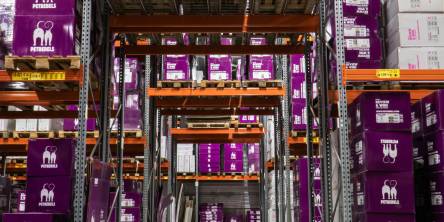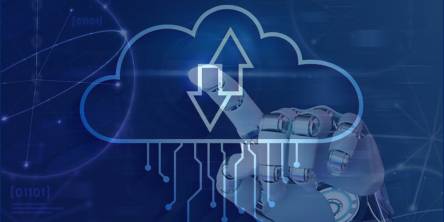Selecting the Right Property Management Software - Tips and Features

Managing properties can be a difficult task with the right tools. Property owners must find and use the best property management software. It can be a long and tedious process as there are many options in the property management software market.
Property management software is a platform that helps manage properties more efficiently and effectively. It can also help in various tasks such as marketing, leasing, accounting, maintenance, communication, and reporting. Improving workflows, saving time, and growing business with the right property management software is possible.
In this article, I will discuss the main features that can be considered when choosing the best property management software.
What is Property Management Software?
Property Management Software (PMS) is a specialized software solution designed to streamline and automate the day-to-day operations of real estate and property management professionals. This type of software is commonly used by property managers, landlords, real estate agents, and property owners to manage various aspects of property-related tasks efficiently. Property Management Software typically offers a range of features to simplify tasks such as accounting, tenant and lease management, maintenance tracking, and communication.
Key Features To Look For In A Property Management Software
There are many property management software available with different features. Property owners must look at key features that suit their needs and preferences. Here are some key features one can look at when choosing property management software.
• Online rent collection: The online rent collection feature allows rent payment collection from tenants online through bank transfers or credit cards. It can also send automated reminders and receipts and deposit the funds directly into the bank account. It helps save time, reduce errors, reduce follow-up and create transparency in transactions. It also helps enhance tenant's experience and satisfaction, as they can pay rent anywhere.
• Tenant screening: This feature helps find the best tenants for the properties by checking their background, credit history, eviction history, and criminal records. It can help collect and manage applications, references, documents, and fees. Tenant screening can help reduce vacancies and avoid problematic tenants.
• Lease documentation: This feature helps create and manage lease agreements for properties. It can help customize lease terms, clauses, policies and generate lease documents for e-signing. It can also help store and access lease documents online and track their status and expiration dates. Lease documentation can help property managers comply with legal requirements, protect their rights and interests, and streamline the leasing process.
• Financial reporting: This feature tracks and manages the financial transactions and performance. It can help record and categorize income and expenses, generate invoices and receipts, and even reconcile bank accounts. It can create and export financial reports, such as income statements, balance sheets, cash flow statements, and tax reports. Financial reporting helps property managers monitor profitability and manage cash flow.
• Tenant communication: This feature helps in communicating with tenants and clients. It can send and receive messages, emails, notifications, and surveys. It can also help create and manage a tenant portal, where the tenants can access their account information, pay rent, submit maintenance requests and give feedback. Tenant communication enables improving tenant retention, satisfaction, and loyalty.
• Maintenance requests: This feature lets property owners handle and resolve maintenance issues. It can help receive and manage tenant maintenance requests, assign and track work orders, and schedule and confirm appointments. It can also help communicate with contractors, vendors and staff, and monitor their performance and feedback. Maintenance requests can help maintain the property, reduce repair costs, and increase tenant satisfaction.
• Digital document signing: The feature allows property owners and tenants to sign and exchange documents online without printing, scanning, or mailing documents. It can help electronically sign lease agreements, contracts, invoices, and other documents using a computer or a smart device. It can also help securely verify and store scanned documents and access them anytime and anywhere. It helps save time, enhance security, and reduce errors.
Tips Or Considerations For Property Management Software
• Assess requirements and needs: Property owners should be aware of the requirements and goals before looking at and comparing different software. It’s essential to identify the problems and difficulties faced and the specific features and functions needed in the property management software. The software should be able to handle multiple and various types of properties, from apartment condos to bungalows. The software license cost should also be considered along with its terms of renewal.
• Software features: Once the software requirements are assessed, it's time to compare them. Some standard features to look for are online rent collection and payment processing, tenant screening, maintenance management, financial reporting, communication and notification tools, etc. The software should give the most value and functionality for the property business. The features can be more or less depending on the portfolio and preferences.
• Selection using reviews and testimonials: One of the ways to select property management software is through reviews and testimonials from other property managers who have used different software options. These can be found on online forums, blogs, social media, or software websites. These reviews help us understand how the software works in real-life situations, its advantages and disadvantages, and how comfortable and happy the customers are.
Final Words
Choosing the right property management software is crucial for any property manager or owner who wants to improve their efficiency, productivity, and profitability. However, finding and maintaining the software that works as needed can be complex. A property management software development service provider can be the best choice to help choose or develop the software and provide support and updates to ensure that it runs smoothly and securely.
Similar Articles
For modern businesses to thrive, ensuring the effective management of inventory stands has become vitally important. Inventory management stands as a cornerstone of success. And the emergence of the Internet of Things (IoT) has introduced a new era of connectivity and efficiency across diverse industries.
Do you know what the following e-commerce companies have in common: Amazon, Walmart, eBay, and more? All of these e-commerce companies' apps make use of Java. Java is decidedly among the leading choices of programming language for e-commerce applications because it offers a world of benefits; for example, since Java code can be run on any platform with a Java Virtual Machine (JVM), users of e-commerce apps made with Java can access the said apps on a variety of devices.
Nikola Tesla in 1926, once described what is now called a mobile phone as a telephone that can fit into one's “vest pocket.” As otherworldly as that idea was then, nearly a century later, the reality is even more astounding.
Given the staggeringly high amounts of data being generated worldwide every single day, it ought to come as no surprise that organizations often struggle to pick the right tools to help them effectively harness the potential of all their data.
In the ever-evolving financial services landscape, industry challenges are numerous and complex. From stringent regulations to rapidly advancing technology and changing consumer expectations, financial institutions face many obstacles.
The human learning capability is a great resource for helping technology evolve and grow, breaking boundaries, and creating new ones. Emulating the ability of humans to learn at a gradual but retentive pace, Machine Learning is the latest power monster that is redefining human-machine interaction.
In the ever-evolving landscape of low-code development, Microsoft's Power Platform stands out as a powerful tool for building custom applications. In today's dynamic digital landscape, creating and managing web pages is no longer the exclusive realm of professional web developers
In the data-driven business world, where information is of utmost priority, organizations are increasingly turning to data warehousing and data marts to harness the power of their data. These data management solutions are pivotal in transforming raw data into actionable insights.
Organizations today deal with massive amounts of data. To make informed decisions based on such data, it is necessary to analyze the data in a way that gives insights that can be acted upon. Data flow itself can be unreliable and there are many points during their transfer from one system to another where data can be prone to corruption.









